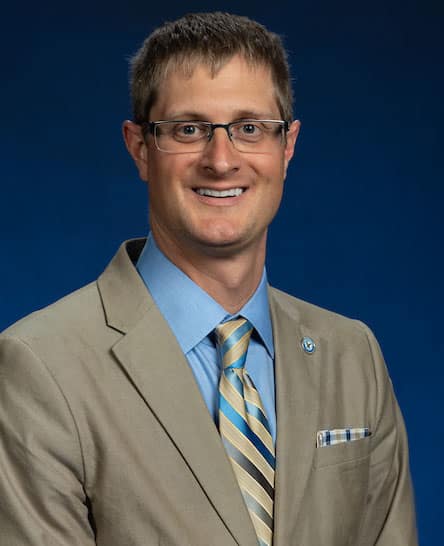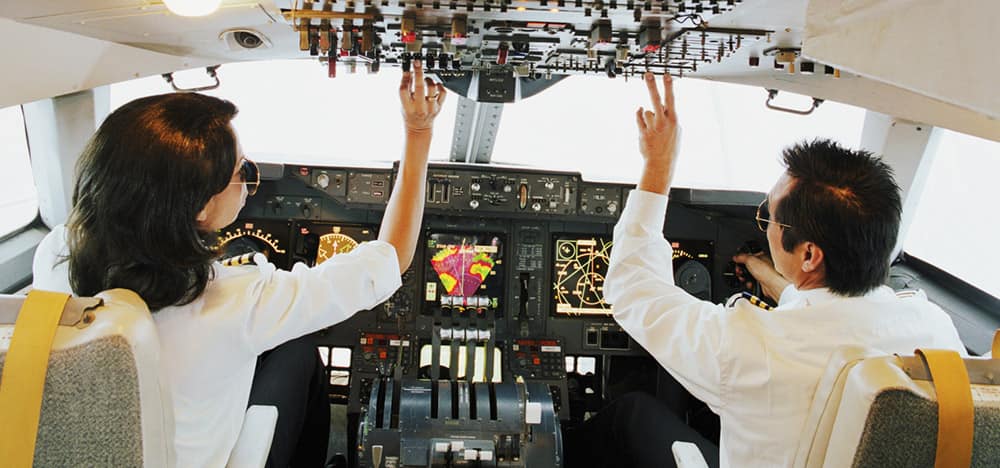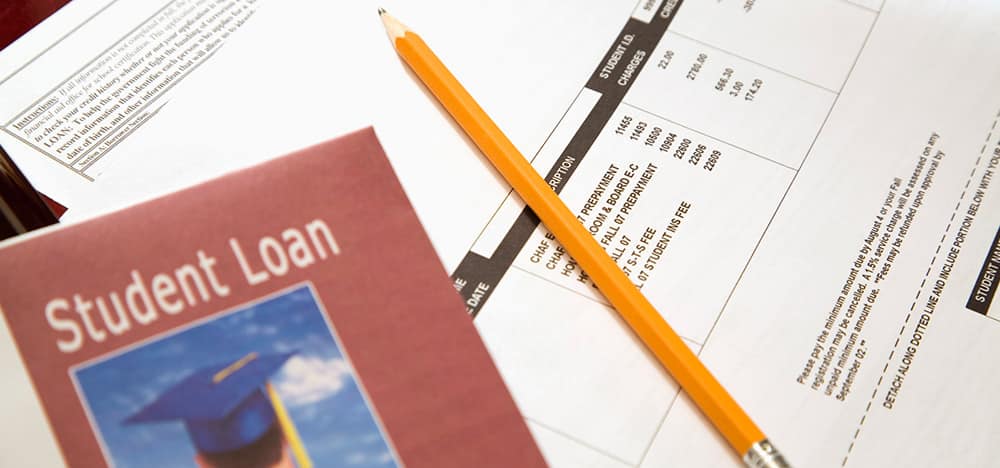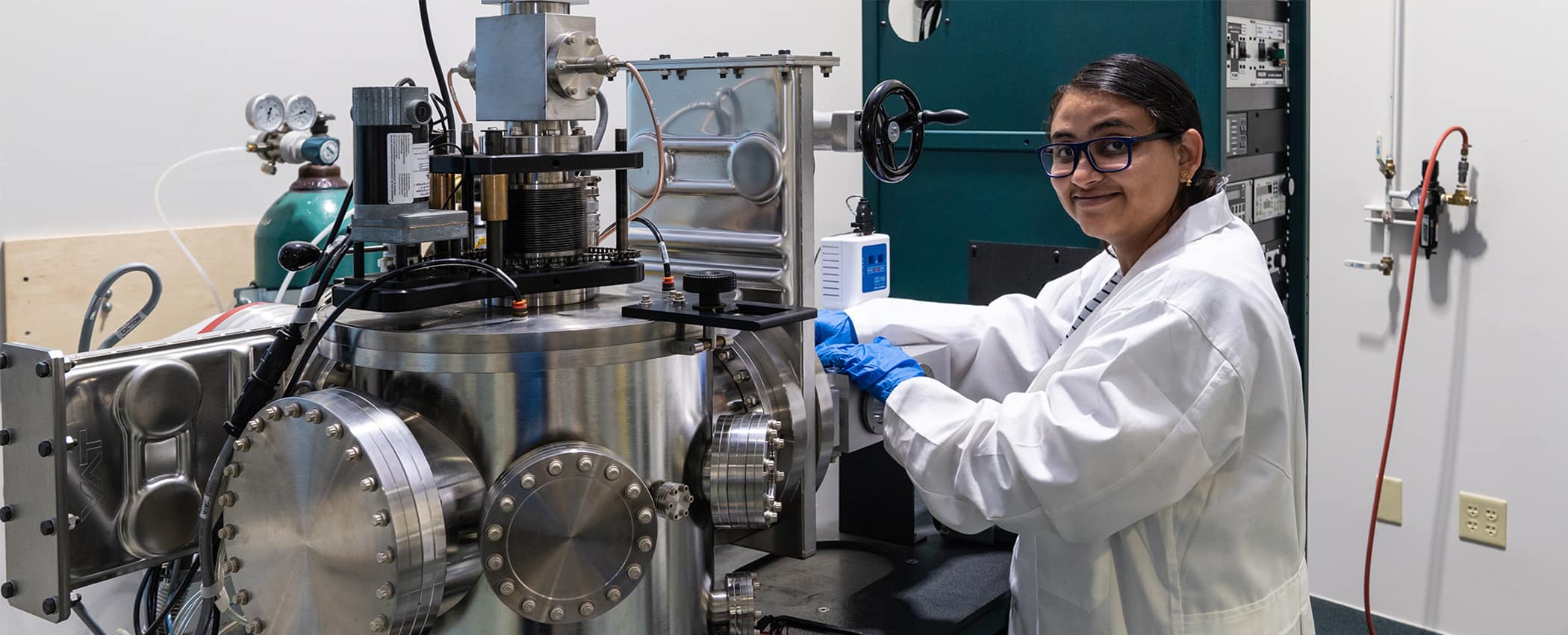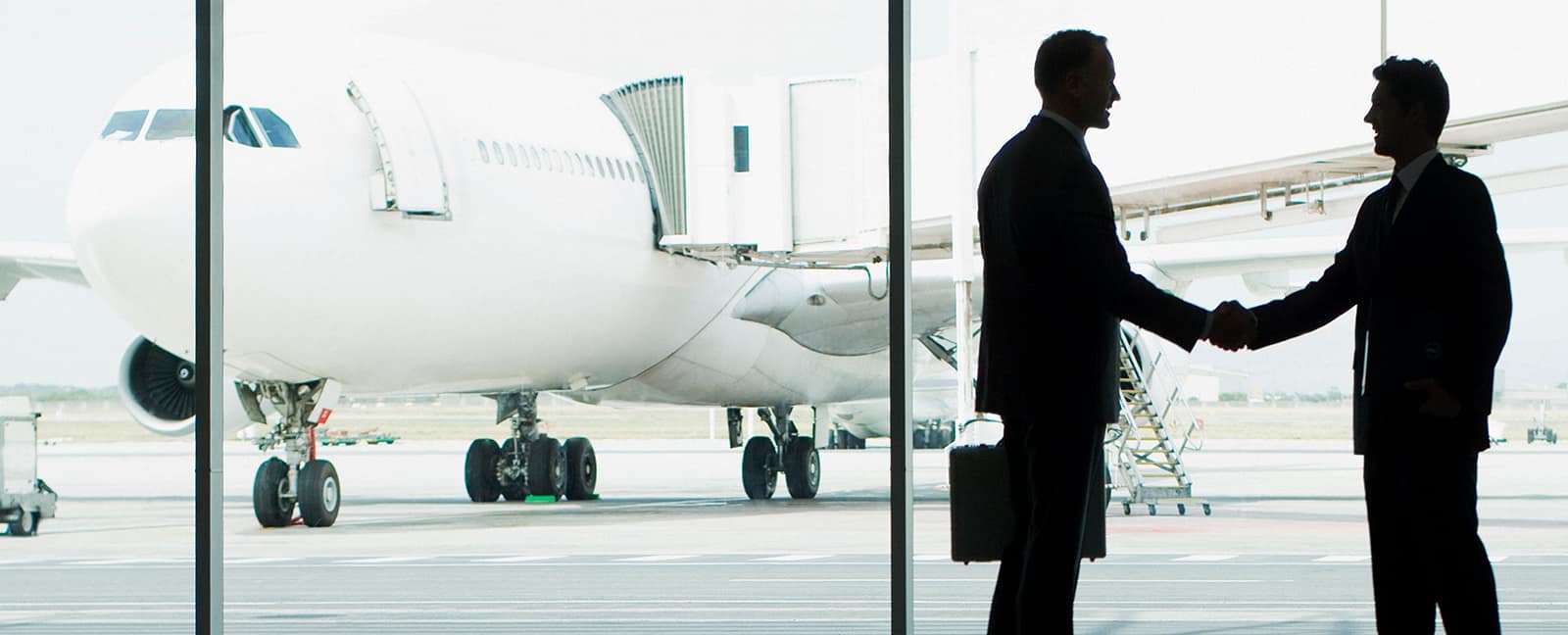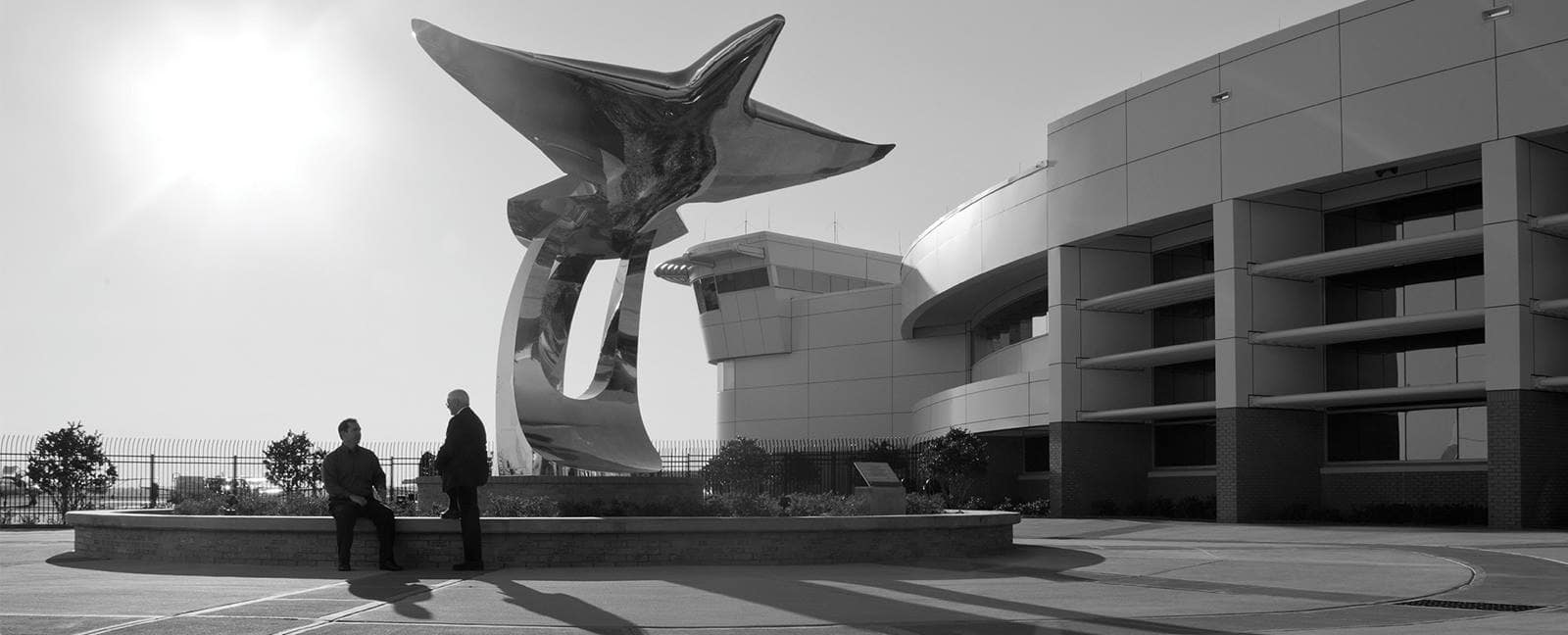
Ph.D. in
Aviation
Aimed at producing the next generation of scholars to teach and conduct aviation research, this program is designed to help working professionals elevate their careers.
The mission of the Ph.D. in Aviation program is to produce outstanding scholars for careers in research and teaching in the aviation field.
At Embry-Riddle, Ph.D. in Aviation students take part in a rigorous, research-driven program that pushes them to their greatest potential.
The Embry-Riddle Ph.D. in Aviation program allows highly qualified students and professionals from diverse backgrounds and aviation career paths to immerse themselves in this high-powered world of aviation.
As the nation’s first Ph.D. program in Aviation, this degree is designed to educate students and professionals in conducting state-of-the-art research in all areas of this important field of study, extending the aviation body of knowledge.
Your academic journey will focus on building skills and foundational knowledge to conduct research in Aviation Safety, Aviation Human Factors, Aviation Operations and Intradisciplinary Studies.
The program has been designed to accommodate working professionals who seek to advance their knowledge and conduct high-quality research in aviation while being employed; the flexible, mainly online and hybrid delivery of this program enables students to continue professional careers while pursuing doctoral education.
The program consists of 60 graduate credit hours, 36 of which will come from online courses designed to provide Ph.D. students with aviation knowledge in their intended specialization. Eighteen credit hours are earned completing the dissertation — an extensive, real-world research project.
Application Deadline
The deadline for applications and all supporting documents is February 1st for the following August cohort. The application package is considered an indication of your ability to perform in a challenging, professional environment. It should be carefully and thoroughly prepared, completed and submitted on or before the deadline of February 1st.
DETAILS
About Aviation at the Daytona Beach, FL Campus
The Ph.D. in Aviation program at Embry-Riddle takes place as a part of the world’s largest aviation-oriented university — Embry-Riddle's Daytona Beach Campus, which has extensive experience in graduate education and leading-edge research. The Ph.D. in Aviation degree is housed in the College of Aviation.
Program Educational Goals
Graduates of the Ph.D. in Aviation degree program will:
- Contribute at the high levels of performance and productivity in academic, business or scientific fields of aviation.
- Conduct and disseminate scholarly research addressing contemporary or future problems in the global aviation industry.
- Actively participate in national and international bodies to sustain continuous improvement in aviation.
- Perform professionally and effectively across multicultural and multidisciplinary units in aviation.
Specializations
The program offers four areas of specialization:
- Aviation Safety: This specialization focuses on safety management systems, safety management practices and tools in aviation, and national and international aviation safety regulations.
- Aviation Human Factors: This specialization focuses on human factors theories and principles, human factors practices in aviation, and human-centered design concepts for real-world aviation technologies.
- Aviation Operations: This specialization focuses on current practices and future trends in aviation, operations research and decision-making tools, multicultural team operations, and aviation organizational dynamics.
- Intradisciplinary: For students with a broader interest in aviation, this specialization offers a cross-disciplinary approach to aviation where they can build a curriculum appropriate for their educational needs.
The program consists of coursework, residencies, qualifying examination and dissertation.
- Coursework – 36 credit hours: The coursework consists of four core courses, specialization courses and elective courses.
- Residency – 6 credit hours: Students are required to complete a minimum of three Residency seminars at the Embry-Riddle Daytona Beach campus.
- Qualifying Examination: The exam is administered over a two-day period and tests the student’s mastery of completed course subject matter and preparation to conduct dissertation research.
- Dissertation – 18 credit hours: Students work on the dissertation research under the advisement of the Dissertation Advisory Committee. The student must complete and defend the dissertation successfully.
Residency
Students are required to complete three five-day on-campus Residency seminars. The seminars include multiple activities and allow students to network face-to-face with other students, faculty and staff while participating in sessions that prepare them for the next phase of the program. The residencies are scheduled during mid-August.
Student Learning Outcomes
Students will:
- Demonstrate mastery of seminal knowledge, foundational skills, and modern technology and tools in one or more aviation disciplines (safety management, human factors, aviation operations, and aviation training and education).
- Pose and solve theory-based and research-based problems designed to advance applications in the field of aviation.
- Extend the aviation body of knowledge by conceiving, planning, producing, and communicating original research.
- Apply expertise in instructional processes.
- Demonstrate leadership, collaboration, and communication necessary for scholarly work in aviation.
Curriculum
The program consists of 60 graduate credit hours. Of those 60 hours, a minimum of 48 hours must be above a Master's degree, and a minimum of 54 hours must be completed at Embry-Riddle. The combined total transfer credit hours that can be applied to the Ph.D. in Aviation degree may not exceed six credit hours. The list of acceptable Master's courses is provided below.
Coursework
Note:
- DAV courses are offered primarily online; limited courses are offered in-person on the Daytona Beach campus.
- Only listed MSA courses are acceptable for the Ph.D. program.
Core Requirements
Students are required to take the following core courses:
| DAV 721 | Quantitative Research Methods in Aviation | 3 |
| DAV 724 | Advanced Quantitative Data Analysis - Data Mining and Modeling | 3 |
| DAV 725 | Research Methods | 3 |
| DAV 726 | Quantitative and Qualitative Data Analysis | 3 |
Specialization and Elective Courses
Students will complete eight of the following courses:
| DAV 712 | Aviation Safety Management Systems | 3 |
| DAV 715 | Human Factors in Aviation | 3 |
| DAV 716 | Management of Systems Engineering in Aviation | 3 |
| DAV 717 | Instructional Design in Aviation | 3 |
| DAV 719 | Regulatory Environment of Aviation Safety | 3 |
| DAV 732 | Aviation Organizational Dynamics | 3 |
| DAV 733 | Multicultural Team Operations in Aviation | 3 |
| DAV 734 | Operations Research and Decision-Making | 3 |
| DAV 735 | Current Practices and Future Trends in Aviation | 3 |
| DAV 736 | Human-Centered Design in Aviation | 3 |
| DAV 737 | Topics in Safety Management Systems | 3 |
Acceptable Master's Courses
Only the following MS in Aviation courses are accepted (pre-approval required)
| MSA 540 | The Air Transportation System | 3 |
| MSA 545 | Human Factors in the Aviation/Aerospace Industry | 3 |
| MSA 547 | Leadership and Critical Decision Making in the Aviation Industry | 3 |
| MSA 573 | Agent-based Modeling (ABM) for Aerospace and Aviation Systems | 3 |
| MSA 621 | Aviation/Aerospace Safety Program Management | 3 |
| MSA 662 | Statistical Analysis for Aviation/Aerospace | 3 |
| MSA 670 | Research Methods in Aviation/Aerospace | 3 |
Residency
Students are required to attend three, five-day annual residencies at the Daytona campus.
| DAV 701 | Residency Seminar I | 2 |
| DAV 702 | Residency Seminar II | 2 |
| DAV 703 | Residency Seminar III | 2 |
Qualifying Examination
Students must pass the Qualifying Examination to be admitted to candidacy. The exam is administered over a two-day period and tests the student´s mastery of completed course subject matter and preparation to conduct dissertation research.
| DAV 801 | Qualifying Examination | 0 |
Dissertation
Once the student has successfully completed the Qualifying Examination, the student will register for Dissertation Research 1. The student must complete 18 credit hours of dissertation courses, at a minimum, and register for at least 3 hours of dissertation courses each semester (i.e., continuous enrollment) until the dissertation has been completed.
| DAV 901 | Dissertation Research 1 | 3 |
| DAV 902 | Dissertation Research 2 | 3 |
| DAV 903 | Dissertation Research 3 | 3 |
| DAV 904 | Dissertation Research 4 | 3 |
| DAV 905 | Dissertation Research 5 | 3 |
| DAV 906 | Dissertation Research 6 | 3 |
Face-to-Face Courses
There are limited face-to-face Ph.D. and Master's courses offered on the Daytona Beach campus, as follows
Ph.D. Residential Courses
| DAV 899 | Special Topics in Aviation | 3 |
| DAV 901 | Dissertation Research 1 | 3 |
| DAV 902 | Dissertation Research 2 | 3 |
| DAV 903 | Dissertation Research 3 | 3 |
| DAV 904 | Dissertation Research 4 | 3 |
| DAV 905 | Dissertation Research 5 | 3 |
| DAV 906 | Dissertation Research 6 | 3 |
Master's Residential Courses (pre-approval required)
| MSA 540 | The Air Transportation System | 3 |
| MSA 545 | Human Factors in the Aviation/Aerospace Industry | 3 |
| MSA 547 | Leadership and Critical Decision Making in the Aviation Industry | 3 |
| MSA 573 | Agent-based Modeling (ABM) for Aerospace and Aviation Systems | 3 |
| MSA 621 | Aviation/Aerospace Safety Program Management | 3 |
| MSA 662 | Statistical Analysis for Aviation/Aerospace | 3 |
| MSA 670 | Research Methods in Aviation/Aerospace | 3 |
Specializations
Students can select one of four specializations.
Aviation Safety
In addition to completing all other required coursework, students must take the following courses to specialize in Aviation Safety.
| DAV 712 | Aviation Safety Management Systems | 3 |
| DAV 716 | Management of Systems Engineering in Aviation | 3 |
| DAV 719 | Regulatory Environment of Aviation Safety | 3 |
| DAV 737 | Topics in Safety Management Systems | 3 |
Aviation Human Factors
In addition to completing all other required coursework, students must take the following courses to specialize in Aviation Human Factors.
| DAV 715 | Human Factors in Aviation | 3 |
| DAV 716 | Management of Systems Engineering in Aviation | 3 |
| DAV 736 | Human-Centered Design in Aviation | 3 |
Aviation Operations
In addition to completing all other required coursework, students must take the following courses to specialize in Aviation Operations.
| DAV 732 | Aviation Organizational Dynamics | 3 |
| DAV 733 | Multicultural Team Operations in Aviation | 3 |
| DAV 734 | Operations Research and Decision-Making | 3 |
| DAV 735 | Current Practices and Future Trends in Aviation | 3 |
Intradisciplinary
The Intradisciplinary Specialization is for students who wish to work outside of the traditional academic boundaries, combining coursework from any specialization, while meeting basic course requirements. Students will complete all four core courses and eight other courses.
International Students
International residential students must be enrolled full-time during required semesters (Fall and Spring) to remain in lawful F-1 status. Students must enroll in at least six graduate credits for each required semester of study (APD 03 - Ph.D. Course Load Definition). They can complete a maximum of three credits of online coursework per semester toward the minimum number of credits for full-time enrollment during required semesters. Other courses must be completed in face-to-face classes on the Daytona Beach campus.
Get Started Now:
Summary
60 Credits
Estimate your tuition by using the Tuition Calculator
View Financial Aid Information
Learn about our General Education
Find out about transferring credits to this degree
Learn more about our Veterans & Military benefits
View our Academic Calendar
Important Dates
Application Deadline
- Summer 2026 Cohort:
Deadline is February 1, 2026
Residency 2025
- August 11-15
Request Information
If you would like to receive more information about the Ph.D. in Aviation degree from Embry-Riddle Aeronautical University, please complete this form and a representative will reach out to you and answer your questions.
Contact Us
Embry-Riddle Aeronautical University
Department of Doctoral Studies
1 Aerospace Boulevard
Daytona Beach, FL 32114
386-226-6207
dbphdav@erau.edu
ADMISSIONS
We welcome you to apply to the Ph.D. in Aviation program. The Ph.D. application process is competitive, with limited positions in the program available.
Students are admitted only during the Summer E semester each year, which is the Residency Seminar in August. Then, the student will begin taking courses in the Fall semester.
The application package is considered an indication of your ability to perform in a challenging, professional environment. It should be carefully and thoroughly prepared.
The Admissions Committee carefully considers all applications completed by February 1.
Are you ready to become one of the world's leading authorities on aviation? Begin the application process to be considered for the Ph.D. in Aviation program.
How to Get Started
Are you Eligible to Apply?
Applicants must meet one of the following two conditions:
- Possess a bachelor and a master's degree, one of which must be in an aviation-related field such as aeronautical science, aviation technology, aviation management, professional pilot, aviation maintenance, aviation electronics, aviation safety and aeronautics.
- Possess a bachelor and master’s degree in non-aviation disciplines, supplemented by at least one year of full-time-equivalent service in the aviation industry as a professional pilot, maintenance manager, air traffic controller or other professional aviation position.
Application Materials
Online Application Form:
Click the "Apply Now" button on the Ph.D. in Aviation homepage or start the application process. This form will be processed internally, typically within 24 to 48 business hours.
Application Fee:
A non-refundable application fee of $50 will be required upon the submission of your application.
Application Submission
Deadline: A completed application package, including those items listed in the Admissions Requirement sections, must be received no later than February 1 in order to receive full consideration for summer admissions. Students are only considered for and admitted to the program for the Summer E semester.
Where to send:
All documents, with the exclusion of official transcripts, may be submitted through our Secure Upload link or may be e-mailed in PDF format to dbphdav@erau.edu. If an applicant so desires, printed materials and official transcripts may be sent to:
Embry-Riddle Aeronautical University Imaging
Ph.D. in Aviation
1 Aerospace Boulevard
Daytona Beach, FL 32114-3900
Notification of decision: Applicants will be informed of admissions decisions within 60 days of the due date.
Affirmative Action
Embry-Riddle Aeronautical University shall actively seek to recruit and admit students promoting the concepts of diversity and ethnicity in the program.
Admissions Requirements
Graduate Record Examination (GRE) Scores (optional):
- GRE scores must be taken in the past five years.
- Official GRE scores are to be sent directly from ETS to Embry-Riddle Aeronautical University.
Note: GRE test scores cannot be used as a substitute for the English language proficiency requirement.
Information about the GRE can be found at ETS.
Transcripts:
Bachelor's and master's degree official transcripts are required and are to be sent directly from all colleges and universities attended. A GPA of 3.5/4.0 in graduate programs and 3.0/4.0 in undergraduate programs is required. If you are an international applicant, be sure to click on the “International Applicants” link for information regarding the evaluation of foreign credentials.
Official transcripts can be sent to:
Embry-Riddle Aeronautical University Imaging
Ph.D. in Aviation
1 Aerospace Boulevard
Daytona Beach, FL 32114-3900
Statement of Goals:
Part 1: Completing the Ph.D. in Aviation is a transformative experience that is designed to prepare graduates to make significant contributions to the industry as research scholars and leaders. In 700 words or fewer, please describe your personal and professional goals and how earning the Ph.D. in Aviation from Embry‑Riddle aids you in achieving those outcomes with consideration to the Ph.D. experience as it affects your life in the short and long term.
Part 2: Identify which faculty member from this website you feel best aligns with your intended research interests and why?
Sample of Writing:
Please submit a writing sample in 500 words or less that describes a significant aviation or aerospace problem you believe would be worthy of research exploration as part of your doctoral program.
Please also briefly describe a method or approach you might use in addressing the problem.
Fiscal and Time Responsibility:
Because education at this level is expensive, students are requested to carefully review their options.
Costs for 2025-2026 will be $1,493 per credit hour, $350 for books per course and a residency fee of $1,612.
Additional details can be found under the Finance section.
Applicants are asked, in 500 words or fewer, to provide a brief fiscal plan, as well as to show how they will accommodate an anticipated workload of approximately 14 hours per class per week as part of their normal work/family schedule. Students are required to enroll in a minimum of five courses per year in addition to the annual residency seminar. Most students will enroll in two courses per term, three terms per year, in addition to the annual residency.
Letters of Recommendation:
Three letters of recommendation are required. Both professional and academic references are suggested.
The letter of recommendation form can be found here and is also provided in the application package.
Resume or Curriculum Vitae (CV):
Applicants must provide a current resume or CV outlining past educational and work experiences.
Video Introduction Statement:
Up to two minutes of video recording, answering the questions that are listed on this application page. Please follow the directions on the recording options, as well as condensing the video file for proper submission.
After you submit your application and $50 non-refundable application fee, you’ll receive an email that includes your Student ID and instructions to activate your ERNIE account. Once your Student ID is assigned, you will need to submit the required documents in order for your application to be reviewed for admission.
Unofficial documents (resume, statement of goals, letters of recommendation, writing sample, and fiscal and time responsibility) may be submitted through our Secure Upload Link.
Note: Transcripts and test scores uploaded through this link will be considered unofficial.
Official documents must be sent officially to the university from the issuing institution, testing service or awarding school by mail or via electronic delivery system. These include official transcripts, test scores and foreign credential evaluations for coursework completed outside the United States.
Mailing Address:
Embry-Riddle Aeronautical University Imaging
Ph.D. in Aviation
1 Aerospace Boulevard
Daytona Beach, FL 32114-3900
Note: Please, only submit documents that are being required on your ERNIE TO-DO LIST. No additional paperwork is required.
International Applicants
Foreign Evaluation:
Graduate applicants who have university-level educational experience outside the United States are required to provide an official course-by-course evaluation in English and must include: U.S. degree equivalency, degree conferral (if applicable), GPA and a copy of the foreign transcript.
We accept evaluations from the following agencies: Educational Credential Evaluators (ECE), International Education Evaluations (IEE), International Education Research Foundation (IERF), Academic Credentials Evaluation Institute (ACEI), Josef Silny & Associates, World Education Services (WES) and Spantran. Admissions also reserves the right to accept foreign credential evaluations from current members of the National Association of Credential Evaluation Services (NACES).
Note that evaluation fees vary depending on the agency and type of report.
The results of the evaluation must be sent directly from FCE Agency to:
Embry-Riddle Aeronautical University Imaging
Ph.D. in Aviation
1 Aerospace Boulevard
Daytona Beach, FL 32114-3900
Language Requirement:
To be admitted into a degree program, international students who will not be graduating from an English educational system within the last two years, or for whom English is not the primary language, must submit official TOEFL, IELTS, Duolingo, EIKEN or Cambridge scores. The preferred minimum TOEFL score for admissions is 213 (computer-based), 79 (IBT Internet-based) or 8.5 (Essentials). The preferred IELTS score is 6.0. The preferred Duolingo score is 105. The preferred EIKEN score is Pre-1. The preferred Cambridge score is 170.
For more information about testing dates and locations, please contact:
- TOEFL Services
Website: www.toefl.org - IELTS International Services
-
Duolingo
-
EIKEN
- Cambridge English Language Assessment
Email: helpdesk@cambridgeenglish.org
Website: www.cambridgeenglish.org/helpdesk
Visa Information for International Students
If admitted to the program, you must attend three residencies and your dissertation defense at the Daytona Beach campus in Florida. To do so, you will need an I-20 and may also require a new F-1 visa each time you enter the U.S. for these events.
As this process can take considerable time, we strongly recommend beginning it as soon as you receive your acceptance letter and confirm your enrollment. At that point, you can contact International Student and Scholar Services at dbiss@erau.edu or 386-226-6579 for guidance on securing your I-20 and F-1 visa.
RESIDENTIAL OPTION
The School of Graduate Studies offers a residential option for Ph.D. students who desire to study on the Daytona Beach campus during required semesters. All residential students must follow the degree requirements on the Ph.D. in Aviation website.
International Residential Students
International students interested in the residential option must go through the admission process as other applicants and meet the requirements for international applicants. Once they are admitted to the program, they can apply for an F-1 visa. See the links below for the detailed requirements for international students.
- Information about international programs
- Ph.D. in Aviation admission requirements
- International graduate admissions
- Requirements for international applicants
- Visa: Visit the Office of International Student & Scholar Service (ISS) for the detailed process and requirements for the F-1 visa application.
- Requirements: International residential students must be enrolled full-time during required semesters (Fall and Spring) to remain in lawful F-1 status. Students must enroll in at least six graduate credits for each required semester of study (APD 03 - Ph.D. Course Load Definition). They can complete a maximum of three credits of online coursework per semester toward the minimum number of credits for full-time enrollment during required semesters. Other courses must be completed in face-to-face classes on the Daytona Beach campus.
Ph.D. Assistantship
The School of Graduate Studies may provide Ph.D. assistantship positions to selected, qualified residential students. They are designed to assist Ph.D. students with the enrollment cost in the Ph.D. program and to provide research experiences that contribute to an enrichment of the academic experience. The number of assistantships available each year depends on the program’s budget availability and must be approved by the Dean of the College of Aviation.
Assistantship Application
To be eligible for a Ph.D. assistantship, applicants must have been admitted to the Ph.D. in Aviation program. A position announcement will be sent to applicants with complete admission applications in early March when the positions are confirmed. Applicants interested in the assistantship position must submit a separate letter of assistantship application explaining their qualifications and why they think they are a good fit. The admission committee will review all applications and select final applicants for web conference interviews. After the interviews, the committee will submit recommendations to the Associate Dean for the School of Graduate Studies. The final selection will be reviewed and approved by the Dean of the College of Aviation.
Ph.D. residential students will receive the Ph.D. assistantship, which covers tuition waivers, residency fees and an annual stipend for up to four years, pending budget availability and satisfactory performance. The student is responsible for other costs, including health insurance.
Requirements
To be eligible to receive and maintain this assistantship, the student needs to comply with the University Academic Doctorate Policies APD-09, Ph.D. Research and Teaching Assistantships. Specifically, during the assistantship appointment, the student is expected to:
- Reside in the Daytona Beach area and maintain daily office hours at the Ph.D. Residential Students office.
- Perform tasks assigned by the Program Coordinator and/or academic advisor, including but not limited to assisting faculty in funded research projects and journal publications, and supporting the School of Graduate Studies in academic and promotional activities.
- Work 20 hours per week to support faculty and the program in the aforementioned assigned tasks.
- Sign an annual 12-month contract and perform the assigned tasks satisfactorily during this contract appointment. The contract is renewable annually, pending budget availability and satisfactory performance.
- Be registered as full-time students as determined by the program.
- Be enrolled in a Ph.D. degree program and be performing satisfactorily. Satisfactory performance includes maintaining a CGPA of 3.20 or higher, passing the Qualifying Exam on time and progressing well with the dissertation research.
- Meet with the academic advisor to complete the annual performance evaluation at the end of each contract year.
Other Employment
While holding a funded assistantship, a student’s total University employment (including the assistantship) may not exceed 25 hours per week. Students holding an assistantship may have other University employment, but it must be approved by Associate Dean for the School of Graduate Studies. Employment outside the University while holding a funded assistantship is generally not allowed. Exceptions to this rule must be approved by the Office of the Provost.
International students are not allowed to work outside of the University, and the total University employment must not exceed 20 hours per week to remain in lawful F-1 status.
FINANCE
Earning a Ph.D. in Aviation from Embry-Riddle comes with costs, but we’ve worked to make it as easy as possible for students to receive assistance and pay for their tuition and other expenses.
Many of our students earn grants, scholarships, and fellowship funding throughout their tenure in their program from various entities.
Veterans are eligible to receive Financial Aid through several federal programs, and other students can receive aid from the government and private lenders.
We also break down the Estimated Cost of Attendance to see what expenses to expect during an online semester or on-campus residency.
Financial Aid
Veterans’ Assistance
If you are a U.S. Veteran, you may be eligible for funds through the various programs from the U.S. Department of Veterans Affairs (DVA).
Embry-Riddle Aeronautical University degree programs are approved by the appropriate State Department of Veterans Affairs (State Approving Agency) for enrollment of persons eligible to receive education benefits from the U.S. Department of Veterans Affairs (DVA).
For further information concerning approved programs and the application process, eligible persons should contact Donna Giambra, Daytona Beach Veterans Affairs at 386-226-6350 or by email at dbva@erau.edu.
Private Lenders
To be eligible for private educational loans, borrower and co-borrower must pass a credit check. Applying with a qualified co-borrower may give you the best rate.
Private loan credit checks are valid for a limited time. Most private loans have variable interest rates.
We recommend you contact them prior to applying.
Federal Financial Aid
Students wishing to use federal financial aid can apply online on the federal website.
The FAFSA application will have to be filled out every year. The application is available January 1 of each year.
One of the final steps in completing the FAFSA is supplying Embry-Riddle's federal school code. Our school code is 001479.
After completing the FAFSA, you will receive a Student Aid Report (SAR). This document lists the information you and your family have provided and tells you what your Expected Family Contribution (EFC) is for the year you are applying.
The Financial Aid Office receives this information in an electronic format, as well. You do not need to mail your SAR to us unless you would like us to make corrections for you. You can also correct your information online.
Once we receive your information, we will prepare an award letter that outlines the aid programs for which you are eligible.
Federal Direct Loans
As a doctoral student, you are only eligible for Federal Direct Loans.
Students must meet enrollment requirement of three credit hours per term to receive a Federal Direct Loan disbursement. The residency of two credit hours is not covered under federal financial aid. Please review the Financial Aid Terms and Conditions for a better understanding of financial aid policies and student's responsibilities as a Financial Aid recipient.
Please keep in mind the maximum aggregate limit for Federal Direct Loans is $138,500 (includes undergraduate, graduate, and doctoral studies).
You can review your loan information on the federal website to determine if you have enough loan eligibility to cover your entire doctoral program.
Estimated Cost of Attendance
Coursework
- Tuition: $1,493.00 per credit hour ($4,479.00 per three-credit course)
- Books: $350.00 (estimated) per three-credit course
- Total: $4,829.00 for a one-course semester
Residency Seminar
- Tuition: $1,493.00 per credit hour ($2,986.00 per two-credit residency course)
- Residency Fee: $1,612.00
- Room and Board: Approximately $130/night + tax for a room in an off-campus hotel within walking distance of the Daytona Beach campus ($650.00 for a five night stay). List of Daytona area hotels
- Meals: $40.00 per day (program provides breakfast and lunch - $200.00 for dinners, for a five day residency week)
- Total: $5,448.00 for one residency course session
Note: Expenses for books, room and board, and meals may vary based on individual student needs.
Payment Options
- Visa
- MasterCard
- Discover
- American Express
- Personal checks are acceptable forms of payment.
Ways to Pay
All payments must include the student's name and identification number.
Online: Payments can be made online by logging in to ERNIE and accessing the Student Services tab. Under Manage Your Student Account, click on View Account Statement.
By Telephone: 386-226-6280
By Mail: Embry-Riddle Aeronautical University
Student Financial Services
1 Aerospace Boulevard
Daytona Beach, FL 32114
Required Dates
Tuition charges are due at the time of registration. Registration for all course work occurs two weeks prior to classes beginning.
Residency fees (currently $1,612) are due six weeks prior to the start of the residency.
FACULTY
Embry-Riddle is the world’s largest aviation-oriented university and has extensive experience in graduate education and leading-edge research.
The Ph.D. in Aviation program draws its faculty mainly from the Daytona Beach, Florida, campus and the Worldwide Campus of Embry-Riddle.
The doctoral faculty members are nationally and internationally recognized scholars in aviation and closely related disciplines and in research methods.
These faculty members have extensive teaching, research and publication records in their disciplines.
Faculty members also participate in professional development to build their skills as instructional designers and facilitators and work with exceptional instructional designers to develop rigorous, engaging and meaningful courses.
Also, learn more about the Ph.D. in Aviation Advisory Board.

Dr. Frank Ayers
Adjunct Faculty and Professor of Aeronautical Science
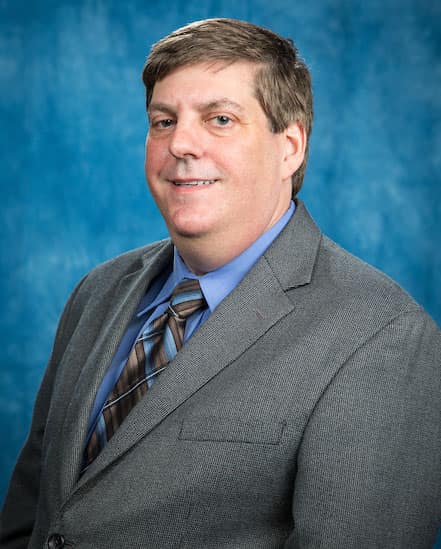
Dr. Andy Dattel
Associate Professor of School of Graduate Studies
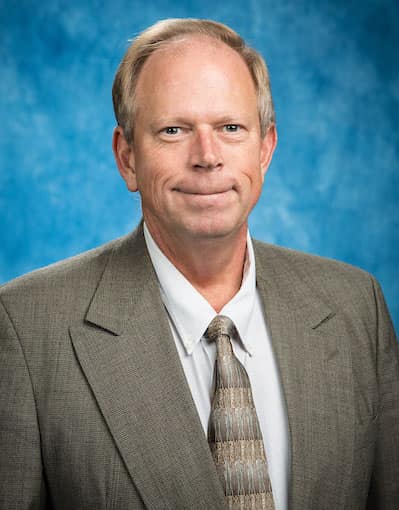
Dr. David Esser
Adjunct faculty and Professor of Aeronautical Science

Dr. Steven Hampton
Professor of School of Graduate Studies and Program Coordinator for the M.S. in Space Operations
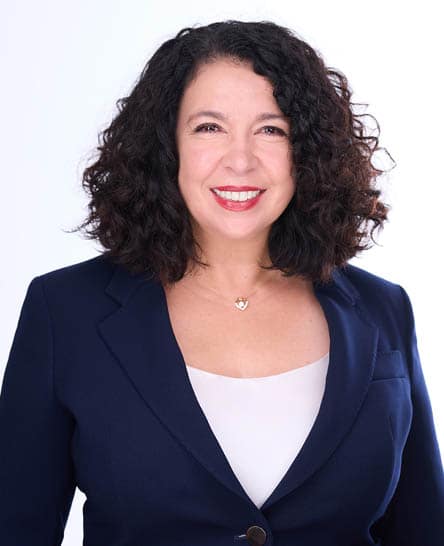
Dr. Barbara Holder

Dr. Dahai Liu
Professor of School of Graduate Studies

Dr. Jane Pan
Assistant Professor of School of Graduate Studies and Interim Program Coordinator for the Ph.D. in Aviation
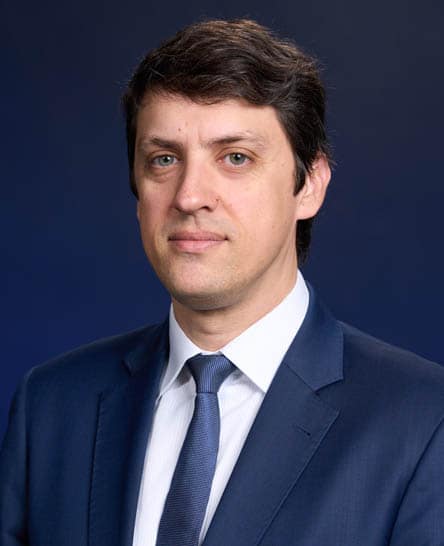
Dr. Joao Souza Dias Garcia
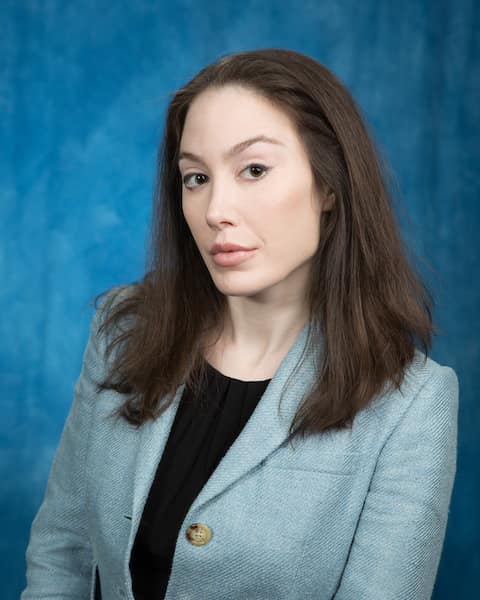
Dr. Jennifer Thropp
Associate Professor of School of Graduate Studies
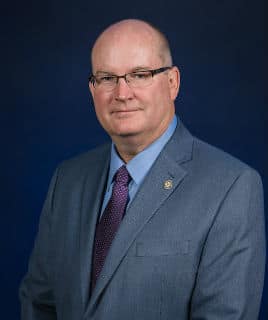
Dr. Alan Stolzer
Professor of School of Graduate Studies and Dean, College of Aviation
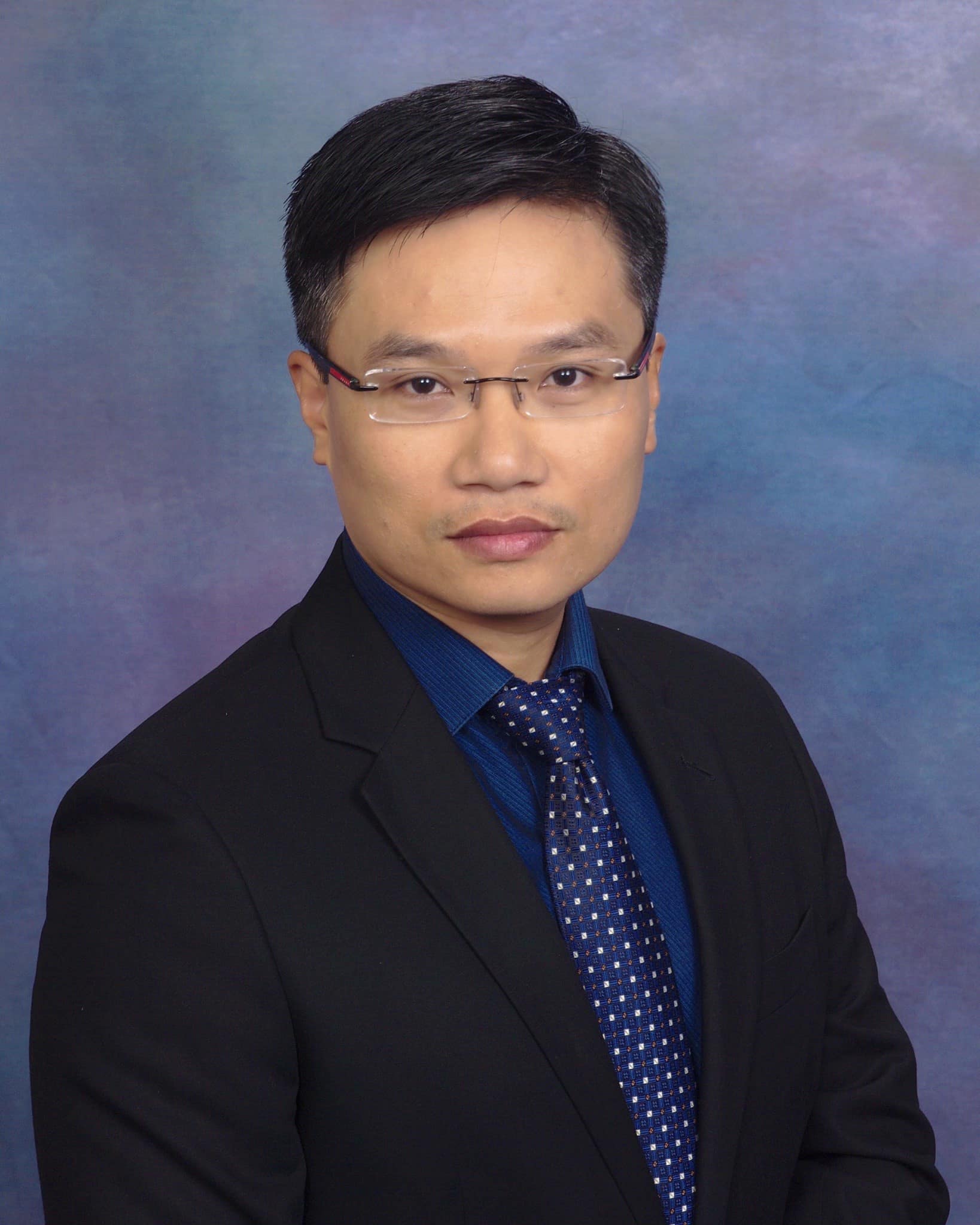
Dr. Dothang Truong
Professor of School of Graduate Studies and Associate Dean of Graduate Studies
